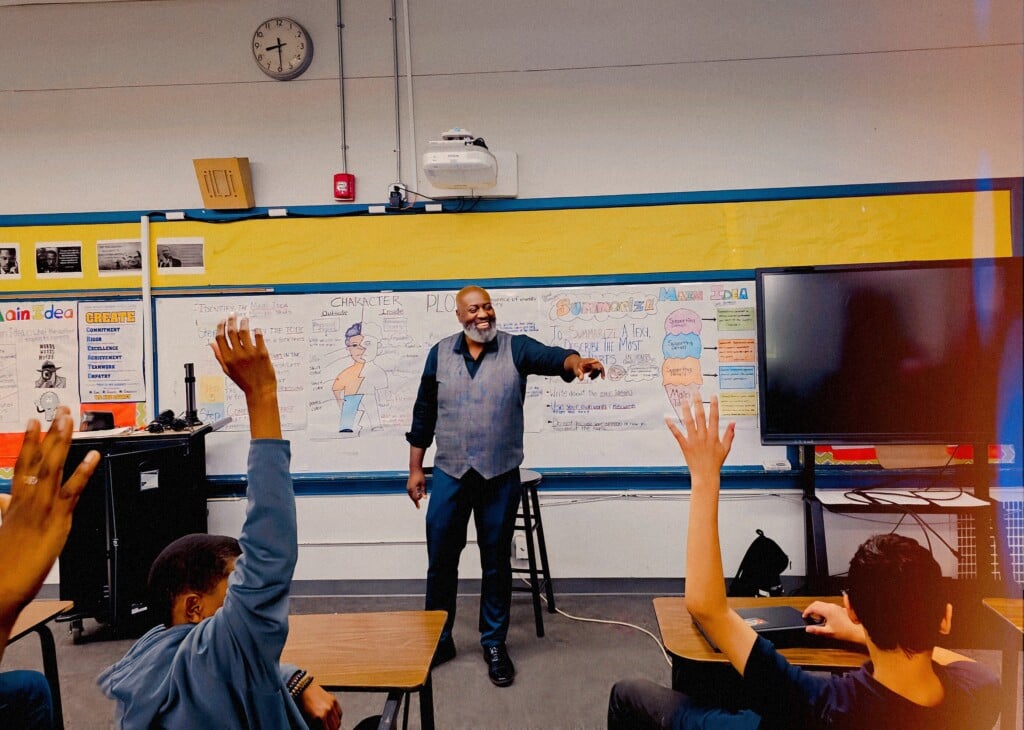Boost Your Child’s Confidence with Primary Science Tuition Singapore
Boost Your Child’s Confidence with Primary Science Tuition Singapore
Blog Article
Discover the Vital Benefits of Understanding Key Science for Young Students
The significance of primary science education and learning for young learners expands far past plain expertise procurement; it serves as a fundamental column in establishing vital skills such as crucial thinking, analytic, and imagination. Involving with scientific concepts via interactive and inquiry-based activities not just cultivates curiosity however likewise lays the groundwork for durable, certain students.
Enhancing Critical Believing Skills
Promoting important thinking skills in young learners is crucial for their cognitive development and future scholastic success. Important thinking enables youngsters to examine information, evaluate proof, and make educated decisions, which are important abilities in today's information-rich culture. By taking part in scientific inquiry, young learners can enhance these abilities as they explore ideas with monitoring, testing, and reasoning.
In key scientific research education, teachers can promote vital reasoning by motivating trainees to ask inquiries, create theories, and perform experiments. This hands-on technique permits kids to exercise analytical and create rational thinking skills. When pupils investigate the homes of materials or the principles of activity, they discover to examine their searchings for seriously and attract conclusions based on proof.
In addition, discussions and collaborative tasks can advertise critical reasoning by supplying opportunities for students to express their thoughts, difficulty presumptions, and think about varied viewpoints. By creating a supportive setting that values inquiry and reflection, instructors can support crucial thinking skills that encourage young students to end up being lifelong students and independent thinkers. Eventually, improving these abilities lays a robust structure for their future academic endeavors and personal development.
Promoting Inquisitiveness and Exploration

Key scientific research education gives a structured setting where young learners can check out various sensations through hands-on experiments and observations. By enabling them to connect with products and participate in inquiry-based understanding, instructors produce opportunities for children to formulate hypotheses, check their ideas, and attract verdicts. Such experiences nurture a sense of wonder and excitement regarding scientific research.

Structure Self-confidence in Trouble Solving
Building confidence in problem-solving is a vital part of key scientific research education and learning that encourages young students to come close to difficulties with strength and creative thinking - primary science tuition Singapore. When kids are motivated to engage with clinical principles via hands-on tasks and inquiry-based understanding, they develop crucial skills in critical reasoning and analysis. This process not only improves their understanding of scientific concepts however additionally promotes a feeling of ownership over their learning
To develop self-confidence, educators need to produce a supportive setting where errors are considered as possibilities for growth instead of failures. This urges students to take threats and explore various solutions to troubles. By giving scaffolding and assistance, educators can aid trainees navigate complicated jobs, slowly enhancing their independence in analytic situations.
Furthermore, collaborative discovering experiences, such as group jobs or experiments, can better enhance students' confidence as they find out to articulate their thoughts and listen to others' point of views. These communications nurture social skills and reinforce the concept that problem-solving is frequently a collective endeavor. Inevitably, cultivating self-confidence in analytic prepares young learners for future scholastic obstacles and outfits them with the devices required for lifelong discovering.
Encouraging Creativity and Development
In the realm of main science education, encouraging imagination and development is crucial for cultivating a vibrant knowing atmosphere. By fostering a culture where young students can check out ideas and experiment freely, educators Source aid pupils develop essential assuming abilities and an interest for discovery. Creativity in science encourages youngsters to ask concerns, create hypotheses, and involve in hands-on activities that boost their imagination.
Incorporating open-ended projects and inquiry-based knowing right into the curriculum allows students to reveal their unique point of views and services. As an example, when charged with resolving a problem pertaining to their setting, trainees can brainstorm several approaches, bring about creative outcomes that showcase their originality. This not just strengthens their understanding of scientific concepts but also infuses a sense of possession over their learning procedure.
Additionally, innovative scientific research education supports collaboration amongst peers, as pupils often share concepts and improve one another's insights - primary science tuition Singapore. This collective spirit advertises not just advancement however likewise vital social skills. Therefore, by focusing on creativity and technology in key internet science education, we encourage young learners to assume critically, welcome difficulties, and picture possibilities, laying a strong structure for lifelong discovering and exploration
Preparing for Future Knowing Obstacles
Young learners' capability to navigate future learning challenges pivots on a solid foundation in key scientific research education and learning. This fundamental understanding equips pupils with crucial assuming skills and a systematic approach to analytic, important for tackling complex issues in an ever-evolving world. Primary scientific research promotes inquiry-based discovering, encouraging pupils to ask inquiries, check out theories, and take part in hands-on experiments.
As they develop these skills, students become adept at analyzing data, acknowledging patterns, and attracting educated conclusions. Such competencies are vital not just in scientific areas yet also in design, math, and innovation (STEM), where interdisciplinary expertise is progressively crucial.
In addition, key scientific research education and learning grows a sense of curiosity and resilience in young learners, allowing them to view challenges as chances for development. As they experience and conquer challenges in their scientific explorations, they build self-confidence in their capability to innovate and adapt.
Ultimately, a strong foundation in primary science not just prepares young students for academic pursuits however likewise furnishes them with the tools essential for long-lasting understanding and versatility in a quickly altering worldwide landscape. By buying primary scientific research education, we are purchasing the future potential of our learners.
Verdict
Recognizing main science is vital for young learners, as it cultivates critical thinking, curiosity, and creative thinking. Involving with scientific concepts through hands-on experiments constructs and enhances analytic capabilities durability. This foundational expertise not just furnishes pupils to examine information and identify patterns however likewise supports an inquiry-based frame of mind. Ultimately, the advantages of primary science education prepare youngsters for future academic pursuits and impart lifelong knowing habits essential for thriving in an ever-evolving globe.
The importance of key scientific research education for young learners extends far beyond plain understanding purchase; it offers as a fundamental column in establishing important abilities such as critical reasoning, problem-solving, and imagination. By producing an encouraging view it environment that values questions and reflection, educators can nurture vital assuming abilities that encourage young learners to end up being long-lasting learners and independent thinkers. Hence, by prioritizing creative thinking and technology in main science education, we empower young students to assume critically, welcome difficulties, and imagine possibilities, laying a strong foundation for long-lasting understanding and exploration.
Young students' capability to navigate future knowing difficulties pivots on a strong structure in key science education and learning.Understanding key science is critical for young students, as it cultivates vital reasoning, inquisitiveness, and creativity.
Report this page